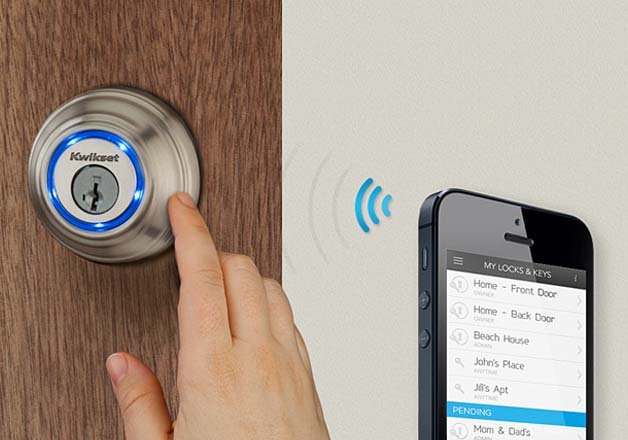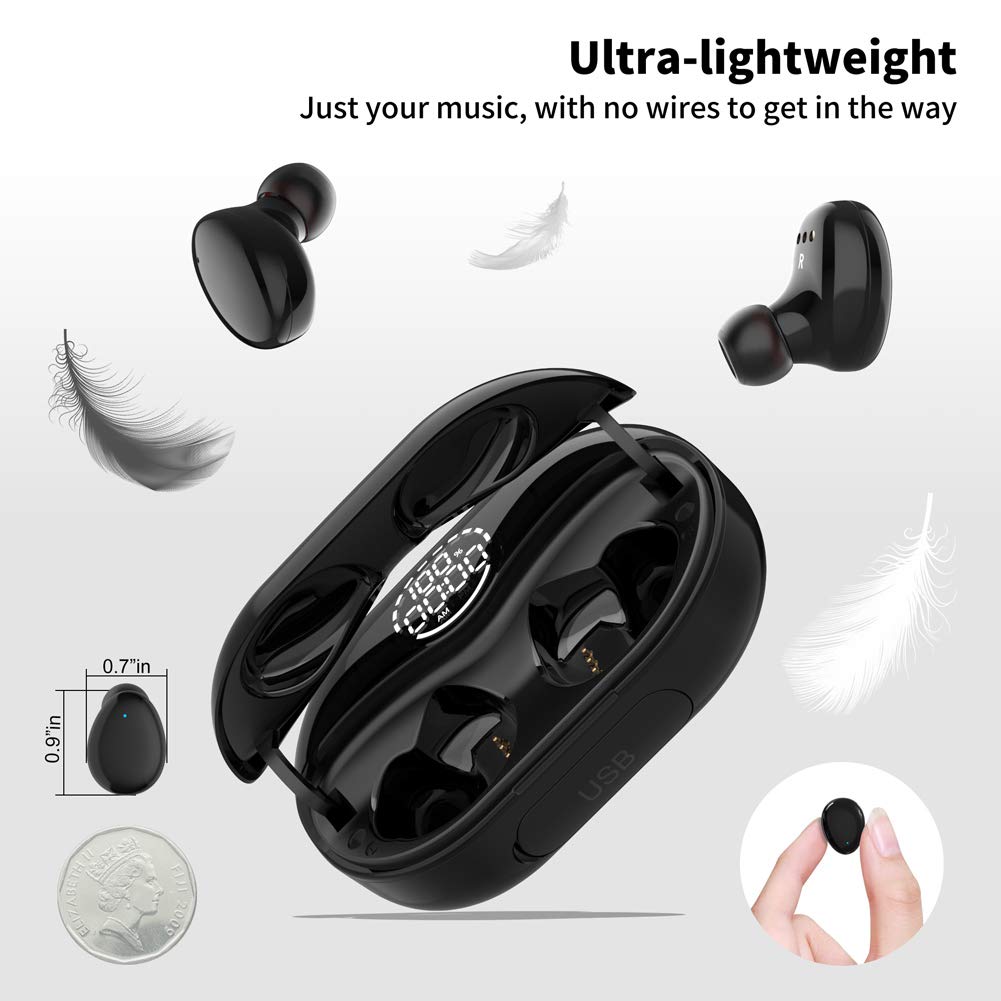
Cybersecurity is one of the most talked about topics. Hacks every day can result in huge losses. There are many easy ways to safeguard your digital assets, without spending too much of your time or money.
To get faster cell service, you can for instance turn on airplane mode. To get easy access to the wireless network at your home or on the move, you can also install a WiFi Smart Plug like the Eteckcity WiFiSmart Plug.
You can store and access files offline on a USB flash drive, which is a great portable server. However, hackers have found ways to hack into USB devices, and you can do the same. Encryption is the best way to protect your data. It will protect sensitive documents from being automated scanned. Final, the latest graphics processor technology allows you brute force complicated passwords, making security measures easy to bypass.

Despite living in an ever-connected world, our vulnerability is greater than ever. Cybercriminals pose a real threat to our personal information, and they are working hard to find new ways in which to hack our systems. You can improve your defenses with the right tools and training. Low Tech Hacking: A Simple Guide to Effective Security Solutions provides a comprehensive guide to improving your cyber security.
Each chapter focuses on a low-tech hacking technique. The book is divided into 8 chapters. Authors use a multi-part approach to ensure that the most important concepts are covered in a logical sequence. Each chapter covers a different concept, and each chapter includes a countermeasure.
Social engineering is one the most common and effective ways to gain unauthorized access to your computer. The book touches on this topic. Although social engineering seems like an outdated technique, the author shows that it is possible to implement this clever little trick with very little knowledge.
The book also covers other, less well-known and equally important, methods. The book also provides information about how to avoid common hacks. Whether you're a student or small business owner, you will benefit from the advice in this book. This guide will teach you how to increase your online security.

You may not be aware of the importance low-tech hacking to protect yourself as a student or professional. However, the authors explain how it is essential to learn the best ways to do this. Even small things, like wrapping your computer cords correctly can make all the difference. If you don't wrap your cords correctly, it can block the weakest points of your computer and make it vulnerable to hackers.
Low Tech Hacking, The Simple Guide, is a comprehensive guide that will help you secure your electronic assets. The book includes a number of experts from diverse backgrounds and covers everything from how you can prevent malicious compromise to what to expect if there is a security breach.
FAQ
Can I order clothes online and have them returned?
Absolutely! It's actually easier than ever to order clothing online. All major retailers offer free returns. Print out a label and send it by mail.
But, you won't get a refund until the item arrives. If you do not like the product, you can return it.
How can I do smart shopping online?
Smart shopping online means finding ways to save money without sacrificing quality. Here are some tips.
Shop around first. Compare prices to determine which store has the best deal.
Ebates and other cashback apps are another option. They function in the same manner as cashback programs offered at physical shops. When you shop through their app, you earn points based on the amount you spend. You can then redeem these points for gift cards, or discounts.
Third, search for promo codes. You can search for them at RetailMeNot.com. You just need to enter the code when you checkout. You will instantly see your savings.
Don't forget clearance sections! Many times you can find incredible deals at low prices on high-end brands.
Which are the best times to shop online?
Sunday is the best day for shopping online for clothes. This is because you can take your time and browse through different stores to find what you are looking. On Monday you need to buy everything you need for the week ahead. Last-minute shopping should be done Tuesday. Wednesday is when you should start buying for Christmas. Thursday is when you should start planning for Easter. Friday is the day to start planning for the summer holidays. Saturday is the best day to prepare for the school holidays. You should also finish any tasks that you have left for the week on Sunday.
Statistics
- The tax is automatically added once you click the checkout button, so factor in an additional 20% when looking at the product page. (makeuseof.com)
- A report from the U.S. Census Bureau found that in the first quarter of 2022, an estimated $250 billion was spent on retail e-commerce sales.1 (thebalance.com)
- All items on AliExpress have an estimated delivery time on the product page, and it's usually anywhere from 20 to 60 days. (makeuseof.com)
- An approximately 90% increase in price affords Hotel X the opportunity of extreme profits under severe circumstances. (dos.ny.gov)
External Links
How To
What are safe online shopping skills?
Safe online shopping is an important skill for anyone who wants to shop online safely. It's also beneficial to learn how to purchase from different websites, without being conned.
This article will help you to understand how to shop online for items. This article will give you all the tricks and tips necessary to ensure that you don’t fall for a scam.
-
Do your research. Before you decide to shop online, it's essential to do your homework first. Review the company, read customer feedback and ask friends for their recommendations.
-
It's worth shopping around. Compare prices between several sellers if you are unsure about the reputation of a particular store. Use price comparison tools like Amazon Price Checker, Google Shopping, and Amazon Price Checker to help you compare prices. These tools enable you to determine which retailers have the lowest prices.
-
Look out for red flags. You should be alert for any red flags when you browse product pages. Fake sites often have misspelled words, grammatical mistakes, and other problems. They may also offer counterfeit goods or incomplete products.
-
Pop-up windows can be dangerous. Pop-ups can be used to steal credit card numbers or passwords. These pop-ups can be closed by pressing "escape" and choosing another browser window.
-
Ask yourself questions. Consider the following questions when you visit a website: Is it trustworthy? Do I get what I need from it? Can I trust the people behind this site?
-
Don't give away your personal information. Unless you initiated a transaction, never give out financial information like your Social Security number or bank account number or credit card details via phone or email.
-
Avoid clicking links in emails. It's very easy to click on a link in an email and end up on a phishing site that looks exactly like the real thing. Avoid falling for this type of fraud by only opening emails from trusted source (such as banks).
-
Use strong passwords. Strong passwords should be composed of letters, numbers and symbols. You should keep your password private and not share it with anyone.
-
Take care when downloading files. Do not open attachments in email. Always download files directly from the source. Never open attachments that come from unknown senders. If you are sent an attachment asking you to install software, do not open it.
-
Report suspicious activity. If you suspect your identity has been stolen, contact your local police department immediately. You may also file a complaint to the Federal Trade Commission.
-
Protect your device. Anti-malware protection should be installed on your computer. This could prevent hackers from accessing your private information.
-
Scammers targeting senior citizens are to be avoided. Seniors are especially vulnerable to scams because they are less likely to understand how to spot fraudulent messages and websites.